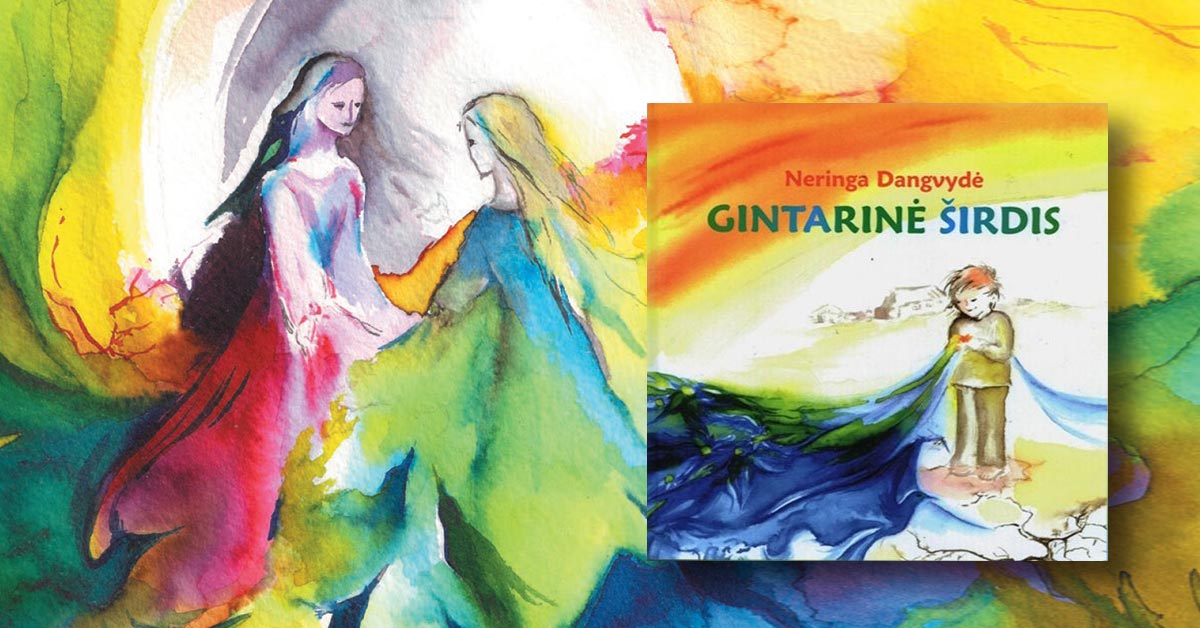LGBTI-inclusive fairy tales suitable for children, rules European court

The children’s book Gintarinė širdis (Amber Heart) includes two LGBTI-inclusive fairy tales
The European Court of Human Rights has ruled that imposing a warning label on a children’s book because it contains LGBTI-inclusive fairy tales is unjustifiable and violates the right to freedom of expression.
The book in question, Gintarinė širdis (Amber Heart), by the late lesbian writer, Neringa Dangvyde Macate, was published in 2013 by the Lithuanian University of Educational Sciences with financial support from the Ministry of Culture.
It includes versions of six traditional fairytales aimed at nine to 10-year-olds adapted to include characters from different ethnic groups or with intellectual disabilities.
The book addresses issues such as stigmatisation, bullying, divorced families and emigration and two of the six fairy tales have storylines about relationships and marriages between persons of the same sex.
After it was published, complaints were submitted to the university and the Ministry of Culture that the book “sought to instill in children the idea that marriage between persons of the same sex was a welcome phenomenon” and was “encouraging perversions”.
The ministry referred the matter to the Inspectorate of Journalistic Ethics. It found the book in violation of the country’s “Protection of Minors from Negative Effects of Public Information”, which states that information that “expresses contempt for family values” or “encourages a different concept of marriage and creation of family” has a negative effect on minors.
The inspectorate recommended that the book be labelled with a warning that it might be harmful to children under 14 years of age. The university recalled the book from distribution and republished it a year later with the suggested warning label.
The Lithuanian courts agreed that the book could cause harm to children because of the LGBTI-inclusive fairy tales. In 2019, the author, who passed away in 2020, took the matter to the European Court of Human Rights.
“This case also sends another important message, which is that all families are equal.”
On Tuesday, the court ruled that the university’s actions interfered with the author’s freedom of expression and unjustifiably sought to limit children’s access to information that depicted same-sex relationships as equivalent to different-sex relationships.
It rejected assertions that certain passages in the book about a princess and a shoemaker’s daughter sleeping in one another’s arms after their wedding were sexually explicit.
The judges were also not convinced by the Lithuanian government’s argument that the book had promoted same-sex families over others.
“To the contrary, the fairy tales had advocated respect for and acceptance of all members of society in a fundamental aspect of their lives, namely a committed relationship,” said the court.
The court, therefore, concluded that the measures taken against the book “had not pursued any aims that it could accept as legitimate…”
The ruling was welcomed by ILGA-Europe’s Head of Litigation, Arpi Avetisyan, who commented: “The court’s message is clear: Protection of children cannot be used as an excuse for censoring information about LGBTI rights, both on the part of the authors for promoting diversity and equality, and for children to learn about acceptance of all members of the society on an equal footing.”
Avetisyan added that “This case also sends another important message, which is that all families are equal. In the court’s own words: Promoting one type of family at the expense of another is never acceptable under the [European] Convention.”
The court ordered Lithuania to pay 17,000 Euros to the author’s mother to cover damages and litigation costs.
The English version of Amber Heart can be downloaded here.
Leave a Reply